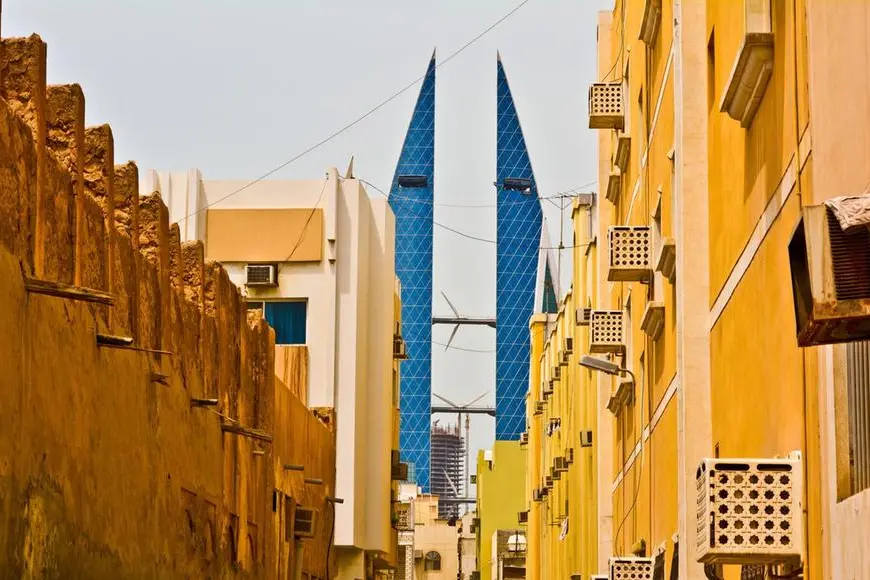PHOTO
A comprehensive list of archaeological, historical and cultural sites is being mapped out, to provide a wider range of tourist attractions, it was revealed yesterday.
Information Minister Dr Ramzan Al Nuaimi, who is politically responsible for the Bahrain Authority for Culture and Antiquities (Baca), told the Shura Council that these sites could become a source of substantial indirect revenues to the government.
He added that calls by members of the chamber to charge entry fees to these locales would also be studied.
“Archaeological, historical and cultural sites form an indirect pillar of tourism, which is an integral part of the economy,” said Dr Al Nuaimi, during the council’s weekly session.
“We are mapping out a comprehensive list of sites that would provide a wider range of attractions to people in Bahrain, the region and abroad,” he added.
However, he said that charging visitation fees could discourage schoolchildren or university students from visiting these sites.
Dr Al Nuaimi said the government was encouraging interest in historical sites and collection of artefacts in private homes and business museums.
“We have initiatives for youngsters such as Ta’a Al Shabab and Little Archaeologist with more on the way to get more involvement from people of all ages in the community.
“Private homes and business museums are being encouraged and, depending on the value, artefacts could be provided necessary government protection or even bought for one of our museums.
“There are also places where traditional handicrafts and arts are practised, showcased and developed and we have asked them to be part of the Heritage Village.”
Admitting that having just five inspectors with judicial powers to deal with sites was not ideal, the minister said new protection mechanisms are on the way.
“The local guides sector would be also developed as we co-ordinate with the Tourism Ministry and other interested parties on new initiatives that include revitalising the Old Manama Suq.”
Complaints by owners who are not being allowed to renovate or demolish their properties are being looked into case by case, said Dr Al Nuaimi.
“There has to be a balance between modernisation and protecting old properties,” he said, adding that rules are subject to review and, if necessary, the National Assembly would be approached.
Replying to a question by Shura Council Chairman Ali Saleh Al Saleh on claims that artefacts were taken by foreign excavators to museums and warehouses in their respective countries over the past decades, Baca president Shaikh Khalifa bin Ahmed Al Khalifa replied:
“Some of the artefacts taken over the years have been recovered while those discovered since the 1990s have been registered and are under our possession.”
He also pointed out that new classifications for properties of value have been introduced.
“We don’t want properties to be demolished, so we are presenting multiple options for owners.
“There are standards we want to maintain and accordingly provide all necessary support to owners.”
Under amendments to the 1995 Artefacts Protection Law, approved unanimously by the Shura Council yesterday, the Cabinet has been authorised to protect properties following a case-by-case presentation by the Baca president.
Properties that are considered as structures of special importance could be preserved even though they are less than 50 years old, under the government’s heritage site lists.
The updated rules would enable the government to declare, if necessary, specific areas in new developments as “sites of cultural value”, helping in their preservation.
The amendments issued through a decree by His Majesty King Hamad last year would see Baca given the power to determine the value of each property in the sea or on land and even those isolated from particular fields.
Baca will also have the power to stop work on any location, block construction or fence off the place until the said area is acquired by the government, within a set time frame.
The new legislation also envisages giving special artefacts inspectors extensive powers to determine the best course of action.
Mr Al Saleh said responsibility of a dilapidated property of value needed to be determined.
“Is it the responsibility of the municipality, Baca or the owners?”
Meanwhile, member Talal Al Mannai said Baca banned demolishing his father Abdulla Al Mannai’s pearl merchant home in Muharraq before the Muharraq Municipality razed it.
“The home was earmarked for the World Heritage Site Pearling Path and we wanted it to be preserved, but the municipality demolished it overnight,” he said.
“It was a witness to history that is now gone, because of lack of co-ordination that needs to be addressed.”
mohammed@gdnmedia.bh
Copyright 2022 Al Hilal Publishing and Marketing Group Provided by SyndiGate Media Inc. (Syndigate.info).





















